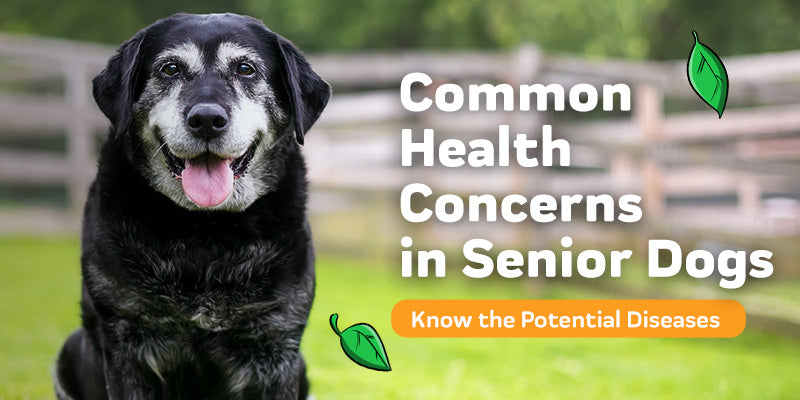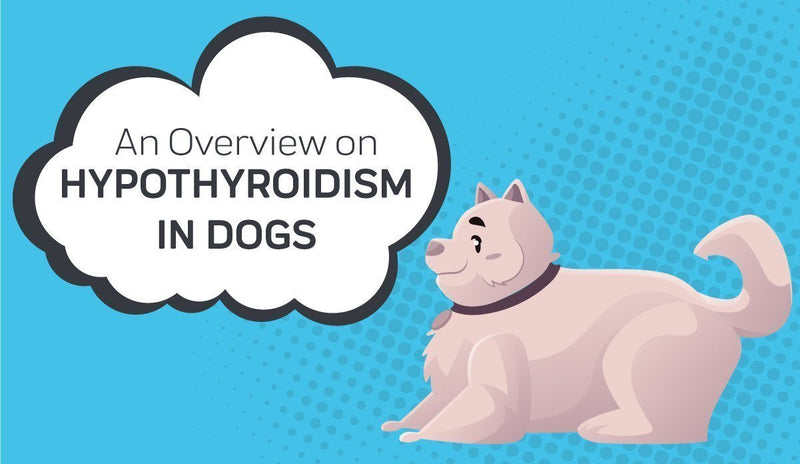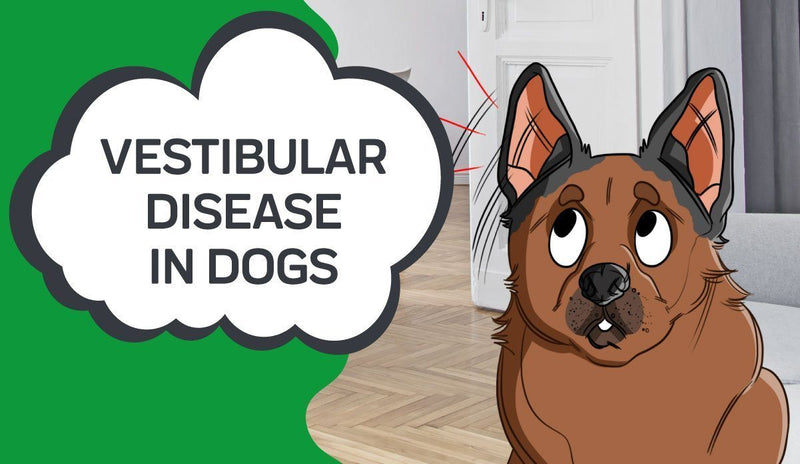- What is Giardia?
- What Does Giardia do to Your Dog’s Body?
- Giardia in Puppies
- Signs of A Giardia Infection in Puppies
- Giardia in Puppies Treatment
- What Causes Giardia In Dogs?
- What are the Symptoms of Giardia in Infected Dogs?
- How Long Does Giardia Last in Dogs?
- How to Tell if Your Dog has Giardia
- Giardia Treatments
- Keeping Your Yard Free From Giardia
- Caution Tips
- How can Giardia Be Killed?

It’s a common problem that affects many dogs, especially puppies – Giardia. This infection is not only uncomfortable for your dog but can spread as well to humans and other pets as well sometimes. Because of this, it’s important to ensure you help to eradicate this disease as soon as possible and take the right precautions to help prevent it from occurring. If you’re looking for how to get rid of Giardia in dogs, you’ll want to read this article. Below you’ll find some helpful information you can use to help destroy this infection and keep your dog healthy.
What is Giardia?
Giardia is an infection found in the intestines that are most often caused by a bacteria called Protozoan Parasite Giardia. Canines can get Giardia when they are near, lick, or consume the feces of other dogs that contain this bacteria in them. Once in the body, the Giardia bacteria can form cysts which can affect both the inside of your dog’s body and their skin.
What Does Giardia do to Your Dog’s Body?
Giardia in dogs works to damage your dog’s health almost instantly. When your dog first gets Giardia, that bacteria will travel into your dog’s small intestine. When it does, small cysts will start to form and appear in your dog's intestine. Because of this, dog owners find it difficult to tell when their dogs infected. However, if not treated immediately, more visible signs will start to present themselves. This will come in the forms of cysts in their coat, diarrhea, and dehydration.
Giardia in Puppies
Giardia in puppies is much more concerning than in older dogs because their immune systems are still developing. This means they might not have sufficient antibodies to help fight off this infection. Because of this, the infection can be deadly or cause more severe side effects.
However, this isn’t to say that a puppy with Giardia has a fatal case. Ultimately, when treating infected pets, your puppy with Giardia successfully being cured depends on whether or not it was caught early and treatment started immediately.
Signs of A Giardia Infection in Puppies
While Giardia symptoms are the same in puppies as in adults, there are a few extra ones to look for:
- Bloated Stomach
- Blood in the Stool
- Indigestion
- Severe Diarrhea
If you notice these symptoms or other signs of giardia infection in puppies not going away, be sure to call your veterinarian so they can check to see how to treat it.
Giardia in Puppies Treatment
Giardia can definitely be treated for puppies, but how well treatment goes depends on numerous things, such as your dog’s immune system. Your vet will more than likely want you to bring a stool sample in just to make sure Giardia is the problem. If the sample tests positive, puppies will be given the same medication as older dogs which are dewormers.
What Causes Giardia In Dogs?
As mentioned above, Giardia in dogs is caused by harmful bacteria that can be found in dog feces. This bacteria can spread in a few different ways as Clinical signs will be a result of an intestinal infection caused by these circumstances listed below.
Smelling/Being Near Other Dogs’ Feces
One of the main ways this will infect dogs is spread is through feces. If your dog enjoys going to the dog parks or you send them to a kennel or daycare, they more than likely have a larger chance of catching this. This is because they will be around other dogs’ feces, and if they step, lick, or sniff an affected piece from an infected animal, they can quickly catch it.
Drinking Contaminated Water
If your dog shares a water bowl or likes to drink some water out of ponds or lakes, this is another common place that Giardia can hide. This is due to possible infected animals drinking out the same area which can then the giardia organism can be passed to your dog.
Eating Grass or Chewing on a Stick that is Infected
Grass and sticks are another ways Giardia is often spread. If infected dogs or animals use the bathroom in a certain patch of grass and your dog eats some grass blades near there, your pup can catch it. This also applies to sticks. If an affected dog or animal chews on a stick or it’s near an affected area and your dog touches that stick, Giardia could end up in your dog's intestines.
What are the Symptoms of Giardia in Infected Dogs?
Giardia comes with a few symptoms. You can use these to help tell whether or not your dog might be suffering from this disease. As we mentioned earlier, they are the same as in puppies;
- Bloated Stomach
- Blood in the Stool
- Indigestion
- Diarrhea
However, sometimes dogs oddly don’t show signs of Giardia if they have it. Because of this, you might not be able to tell if your dog has this disease because they aren’t showing any symptoms.
How Long Does Giardia Last in Dogs?
While it really depends on your dog and their health, Giardia typically can last anywhere from 5-12 days. So, it can heal somewhat quickly, but it needs to be addressed and faced head-on to ensure that it can be treated within this timeframe.
How to Tell if Your Dog has Giardia
There are a few symptoms you can watch out for to tell if your dog has Giardia. Below are a few ways to help see if your dog does.
The Feces Has Mucus
While not a pleasant way to tell if your dog has this, it’s one of the best ways to find out. If you find that your dog’s feces is coated in mucus, this is usually a sign that they have Giardia. Sometimes the mucus will also come out with a green color which is a sign of infection.
Your Dog is Losing Weight
Another tell-tale sign that your dog has Giardia is weight loss. This is often caused by them not wanting to eat and instead are drinking water all the time.
Vomiting
If your dog is vomiting, it could be a sign of Giardia. The bacteria can cause queasiness which can cause your dog to vomit up any food they might have eaten.
Diarrhea
Diarrhea is another major way to tell if your dog has Giardia. If your dog’s feces are not solid and begin to become watery diarrhea, you should take them to be seen by a vet.
Dehydration
If your dog is drinking an incredible amount of water, but is still dehydrated, that could be a sign of Giardia. However, it won’t do to try to force your dog to drink water to help combat this. It’s important to ensure your dog is taken to vet if you find your dog is extremely dehydrated.
Their Coat Looks Bad
Because Giardia infectious cysts can grow on the skin, they can destroy your dog’s beautiful coat. If you find that your dog’s hair/ coat is starting to fall out or looks patchy, it could be that Giardia has been left untreated.
Giardia Treatments
If you do find that your dog has Giardia, you don’t have to worry. There are plenty of Giardia treatments you can use to help heal them.
Medication
Fenbendazole and Metronidazole are the main medications that your veterinarian will more than likely prescribe your pet. However, this could change depending on your dog’s needs and if they have other medical problems that might interact negatively with these two drugs.
Give Your Dog a Bath
A bath will not only help to soothe the skin but remove cysts that form on it. This way, infections won’t occur and you can quickly remove the bacteria from your dog.
Clean Up Feces

Because Giardia spreads in feces, it’s important to clean it up. You can do this with special equipment so you don’t need to get close to it or you can do it the old-fashioned way with a bag. If your dog does have Giardia, make sure to immediately pick up the feces and quickly dispose of it so it doesn’t spread. Be sure to watch your dog when they are around other dogs to ensure they don’t sniff or lick their feces.
Don’t Go in Moist or Cool Environments
Moist and cool environments are where this bacteria loves to hide. If you want to make sure your dog is safe from this harmful bacteria, try to make sure they don’t go in these type of environments. Giardia can survive for up to a week and rapidly reproduce during this time. Because of this, it’s important to avoid these environments as they more than likely contain this bacteria.
Get Yearly Exams
One of the best ways to help prevent your dog from getting Giardia is to make sure they get yearly exams. You can bring in a stool sample to your vet so they can run tests and make sure your dog isn’t infected.
Bathe Your Dog
It’s often unavoidable to fully prevent a dog from sniffing or playing in possibly affected areas. However, you can help to prevent the bacteria from spreading in the body by giving your dog a bath. This way, the bacteria can be washed off and won’t linger around on their body where it could cause major problems down the road.
If you do find your dog has been infected, it’s never too late to give them a bath. In fact, it’s often recommended you often do so. This can help to remove any bacteria on the skin as well as destroy giardia cysts that might be in their coat.
Clean Off Their Toys and Household Items
Cleaning off your dog’s toys and other household items they use is a great way to help prevent Giardia. To fully disinfect them, you can wash them off with hot water and soap. You can also soak them in vinegar and baking soda to help destroy any germs on them.
Always Make Sure to Give Them Clean Water
It’s always important to give your dog clean water, but even more so to help prevent them from getting Giardia. Always make sure to give them clean water for their meals and throughout the day. You can help to better prevent Giardia by giving them filtered water or boiling water and letting it cool down before giving it to them.
Besides giving them clean water, make sure to also clean their water bowl out every day. This will not only help to keep it clean, but prevent the buildup of bacteria that could harm your dog’s health. In fact, it’s believed that water is the number one source of how Giardia is spread. So, you’ll want to make sure your dog only drinks filtered water out of a clean bowl.
Keeping Your Yard Free From Giardia
Dogs mainly spend most of their time outdoors in the area they live. While you might think this space is safe, it doesn’t mean Giardia doesn’t dwell here. Below are some ways you can keep your yard free from Giardia.
Make Sure to Clean Up the Feces
It can be easy to let feces sit in the yard for a few days before cleaning them up. However, when Giardia is involved, it’s extremely important to clean it up immediately. This will help to prevent it from spreading to other animals you own or that live nearby.
Bleach Driveways and Sidewalks
One way to ensure your dog doesn’t get this infection is by bleaching your driveway and sidewalks. Bleach will instantly destroy any bacteria on these surfaces so it doesn’t spread and possibly infect your dog.
Caution Tips
Watch Your Dog in the Summer Near Water
It’s especially important to be careful in bodies of water, like streams during the summer. Summer weather can create humidity, something which Giardia bacteria loves.
Avoid Mud
Muddy water can be a harbor for this bacteria, especially when it’s near a body of water which can encourage extreme growth. It’s important to ensure your dog doesn’t spend much time in the mud to help prevent them from catching this infection.
Be Careful When Treating Your Dog
While it’s often rare for humans to catch Giardia from dogs, it’s not unheard of. If your dog has Giardia and licks your face, the bacteria can be transmitted into your body. It’s a good idea to avoid having your dog lick you or immediately wipe off any saliva they might have passed on to you.
Keep an Eye on Your Dog With Medicine
It’s important to keep an eye on your dog to ensure that the medicine prescribed is working for them. Sometimes the drugs can have bad effects, like severe vomiting or diarrhea. If you find that your dog is having even worse symptoms than before, make sure to immediately contact your vet to find a different solution.
How can Giardia Be Killed?
Cold Temperatures
It can be difficult to destroy Giardia germs entirely without the use of medicine. However, sometimes cold weather can help to kill off the germs because their breeding ground is destroyed. This means in the winter Giardia isn’t as evident which offers your dog more protection from this problem.
Medicine
Giardia can also be killed with the use of fenbendazole and metronidazole. These medicines work to help destroy the bacteria and ensure it doesn’t grow or spread during the infective stage.
Fenbendazole
This medicine is used to help kill off many different types of gastrointestinal problems and other parasites, like Giardia and roundworm. The correct dosage amount will depend on the weight and age of most dogs, so it’s important to check with your veterinarian how much to give your pet.
This drug usually comes in a liquid form. This can help to make giving it to your pet a bit easier than with a pill. You can mix it up with moist dog food to ensure they get the full dose.
Metronidazole
This drug can help to treat anaerobic bacterial infections by destroying the bacteria’s DNA so they can’t reproduce. It can help to keep the immune system strong and move things through the intestines so the bacteria leaves them. Metronidazole is also anti-inflammatory so it can help to calm inflamed areas in your dog’s body to provide relief. However, this drug can cause an upset stomach in dogs and cats and because of this, it’s important to make sure they eat something before taking this antibiotic.
These two drugs are the main ways to help treatment Giardia, although your vet might prescribe a different de-wormer based on your dog’s medical history and needs. Sometimes veterinary professionals might even combine these two medicines together to help fully combat the problems this bacteria causes.
If your dog has Giardia, you don’t need to worry, it’s generally considered treatable. However, you need to immediately take them to your vet and be careful when treating them because it can spread to humans. By keeping the information above in mind, you can be sure that your pup will be able to heal from the disease and get back to their normal, playful self.
Sources:
Parasitic Diarrhea (Giardiasis) in DogsGiardia & Pets
Overview of Giardiasis
Giardia in Pets
Giardia infection in dogs and cats
Giardia spp infections in dogs and cats
Overview of Giardiasis
















